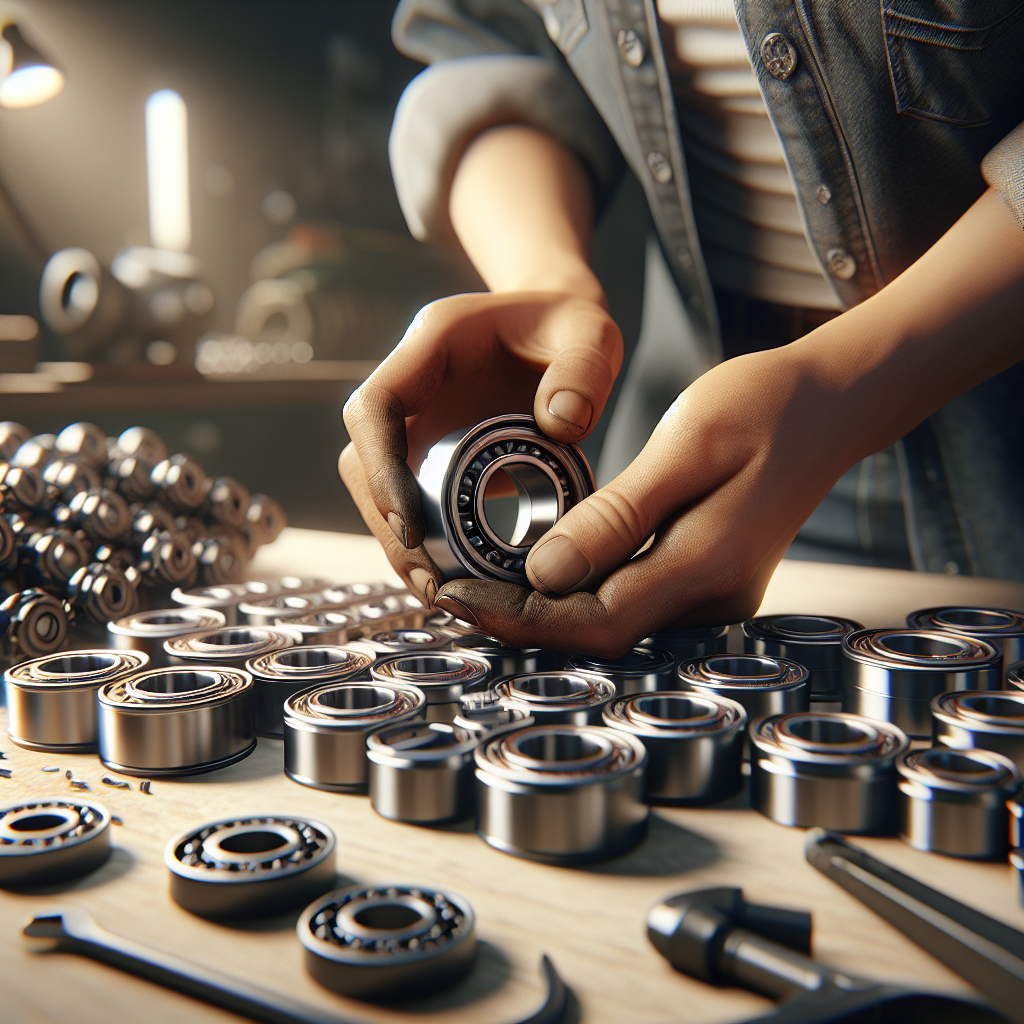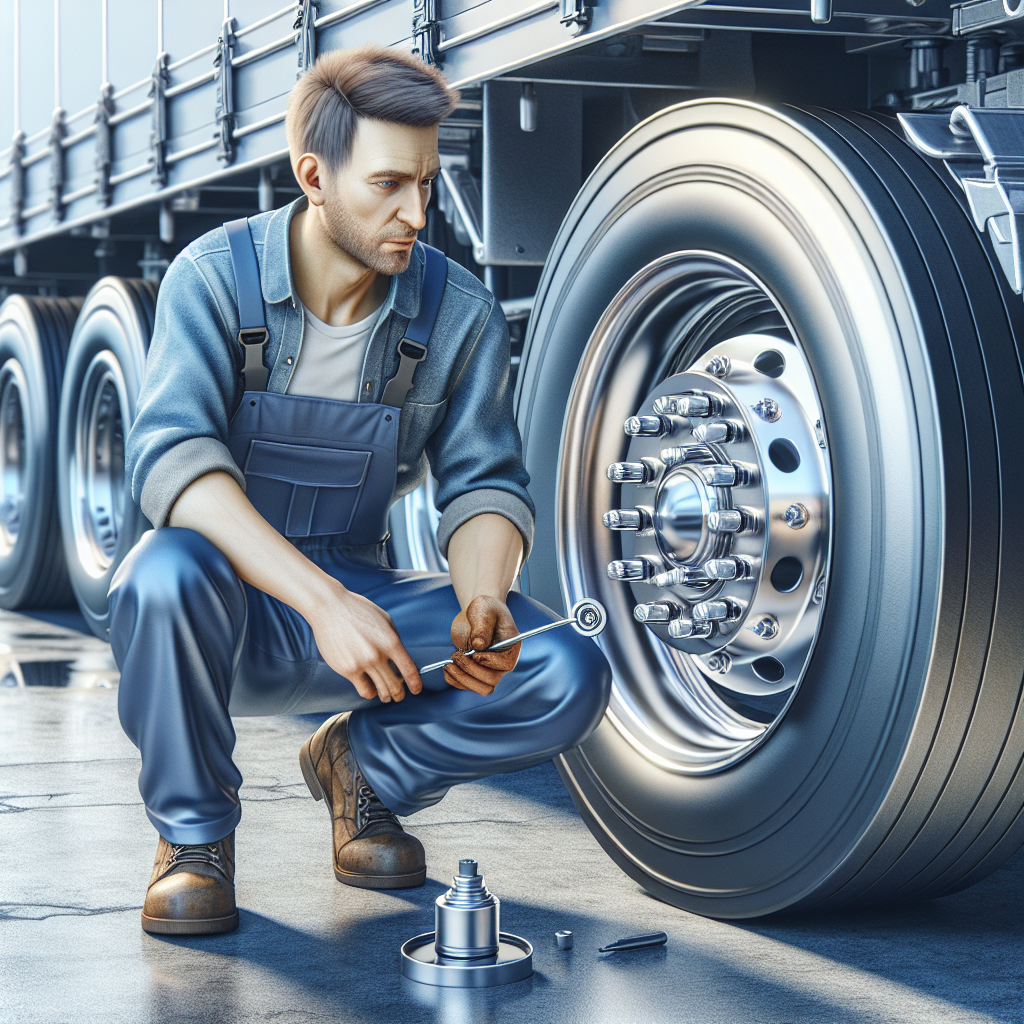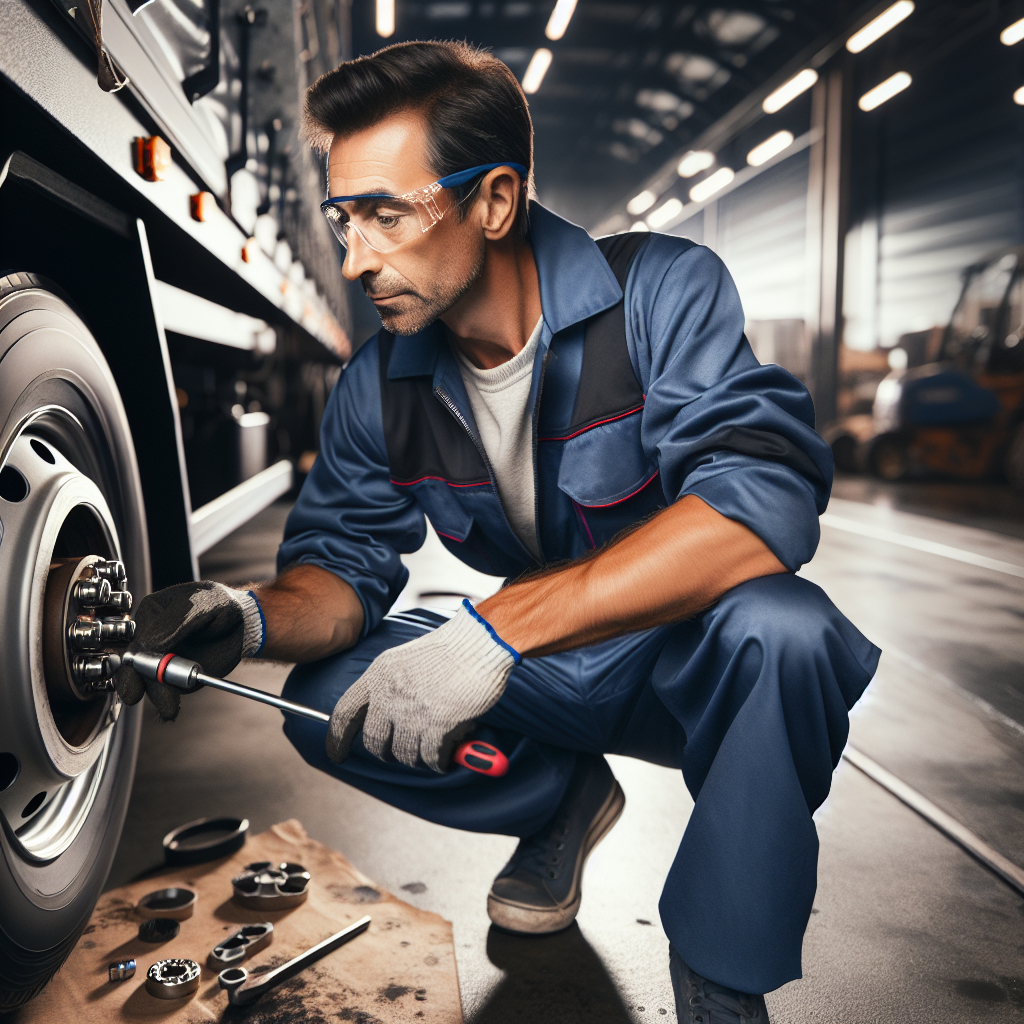Understanding the importance of proper maintenance is crucial for any trailer owner. Trailer wheel bearings play a vital role in the safe operation of your trailer, ensuring that the wheels rotate smoothly and efficiently. Regular inspection of these components can prevent serious issues from arising, such as wheel lockup or even complete wheel failure while on the road.
To inspect trailer wheel bearings like a pro, you'll need to familiarize yourself with the signs of wear and the steps involved in the inspection process. Look for symptoms such as unusual noises while driving, excessive heat, or visible grease leaks. These indicators often signal that your bearings require immediate attention.
Taking the time to perform thorough inspections not only enhances the performance of your trailer but also ensures your safety and the safety of others on the road. Remember, an ounce of prevention is worth a pound of cure!
For a comprehensive guide on how to inspect trailer wheel bearings, keep reading. You can also tow with peace of mind, knowing that trailerwatchdog is standing guard.
Essential Tools for Inspecting Wheel Bearings

When it comes to inspecting trailer wheel bearings, having the right tools is essential for a thorough and effective evaluation. The following tools will help you perform your inspection like a seasoned professional:
- Jack and Jack Stands: Safely lift your trailer to access the wheels for inspection.
- Wheel Chocks: Prevent the trailer from rolling while you work. Safety first!
- Socket Wrench Set: Necessary for removing the wheel hub and accessing the bearings.
- Torque Wrench: Ensures that you can properly tighten the wheel nuts to the manufacturer’s specifications.
- Grease Gun: If your bearings require lubrication, a grease gun allows for easy and precise application.
- Cleaning Supplies: Use rags or brushes to clean the wheel bearings and hubs, ensuring you can see any signs of wear or damage.
- Magnifying Glass: Helpful for closely inspecting the bearings for cracks or pitting.
Having these tools at your disposal not only simplifies the inspection process but also enhances your ability to detect potential issues early. By being well-prepared, you can ensure that your trailer remains in optimal condition for all your towing adventures.
Step-by-Step Guide to Inspecting Wheel Bearings

Inspecting your trailer's wheel bearings is crucial for ensuring safety and performance. Here’s a step-by-step guide to help you through the inspection process:
- Prepare Your Trailer: Start on level ground, and engage the parking brake. Use wheel chocks to secure the trailer.
- Lift the Trailer: Using a jack, lift the trailer until the wheel is off the ground. Secure it with jack stands for safety.
- Remove the Wheel: Using a socket wrench, remove the lug nuts and take off the wheel. Set it aside in a safe location.
- Inspect the Wheel Hub: Examine the hub for any signs of damage or wear. Look for cracks, rust, or other abnormalities.
- Remove the Bearing Cap: Carefully pry off the bearing cap with a flathead screwdriver, taking care not to damage it.
- Check the Bearings: Remove the bearings and inspect them. Look for signs of pitting, discoloration, or excessive wear.
- Clean and Lubricate: If the bearings are in good condition, clean them thoroughly and apply fresh grease. If damaged, replace them with new bearings.
- Reassemble: Replace the bearing cap and reassemble the wheel, tightening the lug nuts to the manufacturer’s specifications.
- Test the Wheel: Spin the wheel to ensure it moves freely without noise. If everything looks good, lower the trailer back to the ground.
Following these steps will help you maintain your trailer's wheel bearings effectively, ensuring a safer towing experience.
Signs of Worn or Damaged Wheel Bearings
Understanding the signs of worn or damaged wheel bearings is essential for the safety and performance of your trailer. Ignoring these signs can lead to catastrophic failures on the road. Here are some key indicators to watch for:
- Unusual Noises: If you hear a grinding, rumbling, or whining sound coming from the wheel area, it might indicate that the bearings are worn out or damaged.
- Excessive Heat: If you notice that the wheel hub is hot to the touch after a drive, it could be a sign of insufficient lubrication or damaged bearings.
- Play in the Wheel: When the wheel is lifted, if you can wiggle it side-to-side or up-and-down, it indicates that the bearings may be loose or worn.
- Vibration: A noticeable vibration in the trailer while driving can be a result of failing wheel bearings, affecting your overall towing experience.
- Visible Damage: Regularly inspect the bearings and hub for any signs of cracks, rust, or discoloration. These visual cues can help you catch problems early.
- Abnormal Tire Wear: If you observe uneven tire wear on one side, it could be an indication that the wheel bearings are not functioning correctly.
Being vigilant and recognizing these signs early can prevent further damage and ensure a safer journey with your trailer.
How to Maintain Trailer Wheel Bearings

Proper maintenance of your trailer's wheel bearings is crucial for ensuring their longevity and optimal performance. By following these essential steps, you can keep your bearings in excellent condition and avoid costly repairs:
- Regular Inspection: Conduct periodic inspections of your wheel bearings. Look for signs of wear, damage, or discoloration, and listen for any unusual noises while driving.
- Lubrication: Ensure that the bearings are properly lubricated. Use high-quality bearing grease and follow the manufacturer's recommendations for re-greasing intervals. Over time, grease can break down, so it's essential to replenish it regularly.
- Seal Integrity: Check the condition of the seals that protect the bearings from dirt and moisture. Damaged or worn seals can allow contaminants to enter, leading to premature wear. Replace seals as necessary to maintain a tight seal.
- Wheel Alignment: Proper wheel alignment is critical to the health of your wheel bearings. Misalignment can cause uneven tire wear and put additional strain on the bearings. Have a professional check and adjust the alignment if necessary.
- Cleaning: When servicing your wheel bearings, clean them thoroughly before applying new grease. This helps to remove any debris or old grease that could affect performance.
- Replacement: If your inspection reveals significant wear or damage, do not hesitate to replace the bearings. It's better to invest in new bearings than risk a breakdown while towing.
By incorporating these maintenance practices into your routine, you can extend the life of your trailer's wheel bearings and ensure a safer towing experience.
When to Seek Professional Help with Wheel Bearings

While routine maintenance can help you manage your trailer's wheel bearings effectively, there are times when seeking professional help is essential. Recognizing these situations can prevent further damage and enhance your safety on the road. Consider contacting a qualified technician if you experience any of the following:
- Unusual Noises: If you hear grinding, squeaking, or rumbling sounds coming from your trailer wheels, it may indicate a problem with the bearings. These noises often suggest that the bearings are worn out or damaged.
- Excessive Heat: A noticeable increase in wheel temperature can be a sign that the bearings are not functioning correctly. If you feel excessive heat after towing, it’s crucial to have them inspected as overheating can lead to catastrophic failure.
- Vibration or Pulling: If you notice your trailer vibrating or pulling to one side while driving, it could indicate a bearing issue. These symptoms can affect your towing stability and should not be ignored.
- Frequent Maintenance Issues: If you find yourself frequently servicing or replacing your wheel bearings, it may be time to consult a professional. They can assess the overall condition of your trailer to identify underlying problems.
- Visual Damage: If you spot any physical damage to the bearings or related components during your inspections, such as rust or pitting, it’s critical to seek professional assistance to avoid further complications.
When in doubt, trusting a professional with your trailer's wheel bearings can provide peace of mind and ensure safe towing. Tow with peace of mind, knowing that trailerwatchdog is standing guard.








